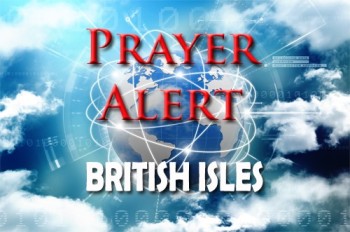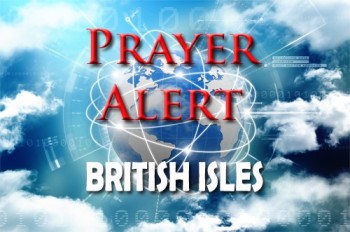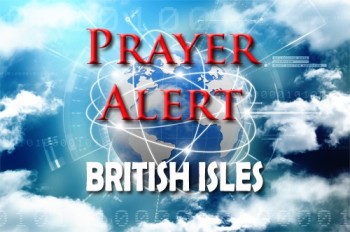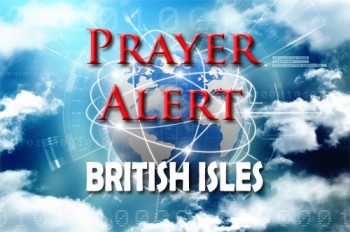Displaying items by tag: Scotland
Scotland: new SNP leader
New SNP leader Humza Yousaf has said that despite his battles with the UK government he will work with them and other devolved nations constructively. Rishi Sunak congratulated Nicola Sturgeon's successor, saying they should both focus on ‘issues that matter to people’, like reducing inflation, rather than Scottish independence. Yousaf told his party, ‘Now it is time for the SNP to come together and deliver independence.’ He paid tribute to his rivals, finance secretary Forbes and former minister Regan, saying, ‘I know collectively we will continue to work hard as part of Team SNP’. https://www.bbc.co.uk/news/live/uk-scotland-65086830 Mr Yousaf had been health secretary, so is aware of the mammoth need to fix health and social care problems. 600,000+ are on a waiting list; A&E departments are regularly full. One in six hospital patients cannot get out, despite being ready to be discharged.
Scotland: SNP elections
On 27 February around 100 people gathered online from across Scotland and beyond in prayer declaring the greatness and goodness of God, confessing the sins of the nation, and praying into aspects of the conduct and process of the SNP leadership campaign. They decided to meet online again on 13 March, the same day that SNP members began voting for their new leader. Voting ends on 27 March. This election is not only important for the SNP, it is significant for the whole of Scotland and beyond. The new SNP leader will be Scotland’s First Minister, leading the Scottish Government, dealing with leaders of the rest of the United Kingdom, notably with London’s PM and Cabinet. They must maintain the SNP's place in Government, while pushing forward Independence. With Sturgeon no longer leader, her opponents could grasp the opportunity for electing an alternative government - firmly cementing the future of the Union. See also
SNP leadership candidates
Humza Yousaf and Kate Forbes are leading candidates to be the next first minister. Kate Forbes said she would not have backed the Scottish government's bill to make it easier to change gender legally. At the heart of her identity is membership of the socially conservative Free Church of Scotland. As a Christian she believes marriage to be between a man and a woman, but she insists she would defend the law as ‘a servant of democracy.’ Mr Yousaf describes himself as a proud Muslim who will be fasting during Ramadan, which falls in the final week of the leadership campaign. He said that he does not legislate on the basis of his faith, and he has a track record of supporting gender reform, gay marriage, and buffer zones around abortion clinics. Ms Forbes also does not legislate on the basis of her faith, favouring votes of conscience. See also
Nicola Sturgeon resigns
Nicola Sturgeon will step down as Scotland's first minister after over eight years in the job. She has resigned without achieving the one overriding ambition which first sparked her interest in politics as a teenager - Scottish independence. She has been a central figure in Scottish and UK politics and Scotland's longest serving first minister. Her departure comes after a rocky period for her party. Reform of gender recognition laws caused controversy inside and outside the SNP. There are tensions over how to secure a second independence referendum. She said she had been ‘wrestling’ with the question of her future for some weeks as ‘the nature and form of modern political discourse means there is much greater intensity, brutality, to life as a politician than in years gone by’. One of her friends said, ‘She's had enough’.
Scotland: Nicola Sturgeon and gender identity reforms
Nicola Sturgeon plans to take legal action after Rishi Sunak blocked her controversial gender reforms allowing 16 year olds to change their legal gender without the need for a medical diagnosis of gender dysphoria. Scottish Secretary Alister Jack has written to the First Minister declaring he will veto the Bill, warning of ‘significant complications’ if Scotland and England have different legal frameworks for gender recognition, potentially allowing someone to be male in one country and female in the other. He intends making an order under section 35 of the Scotland Act to prevent the Bill from proceeding to Royal Assent. Ms Sturgeon accused Westminster of a ‘full-frontal attack’ on the Scottish Parliament and its ability to make its own decisions on devolved matters. The Christian Institute and Scottish Catholic bishops have both called for the Scottish Government's Gender Recognition Reform (Scotland) Bill to be scrapped.
Scotland: schools shut
Scotland's first national school strike since the 1980s has taken place, with a one-day walkout over pay by teaching staff at primary and secondary schools, and also at many council nurseries. A revised pay offer was rejected. Education secretary Shirley-Anne Somerville said that the employers’ offer was fair, with rises up to 6.85% for the lowest-paid. Finding the money to give unions a 10% pay rise would mean some very hard choices for councils and the Scottish government. Teachers said they are asking for 10% to keep salaries in line with inflation - currently 11%. They are feeling the squeeze from this cost-of-living crisis. They think that they are working way beyond their 35-hour week, and the long holiday comes nowhere near making up for the amount of working hours put into the job. Many work during the holidays preparing for the next term. They find their job stressful, and feel the pay isn't fit for purpose.
Dangerous language in politics
Nicola Sturgeon has been accused by Nadhim Zahawi of using ‘really dangerous’ language after she decried the Tories at last week’s Scottish National Party conference. Addressing whether she would prefer a Labour or Tory government, Ms Sturgeon said, ‘I detest the Tories and everything they stand for, so it's not difficult to answer that question’. On Labour politicians, she commented, ‘Being better than the Tories is not a high bar to cross right now. I think we need to see more of a radical alternative from Labour rather than just a pale imitation’. Ian Murray, Labour's shadow Scottish secretary, said the next electoral contest in Scotland will be a UK general election between this rotten Tory government and a new energised Labour Party fit to govern the country. Pray for our politicians to demonstrate the Kingdom values of honour, righteousness and integrity, and that they all will be united with God-given insights.
Church criticises Scottish government re prayer vigils
The Scottish government's chief legal officer has come under fire after saying that prayer vigils outside abortion clinics could be 'far more damaging' than verbal protest. Addressing the UK's supreme court about abortion clinics in Northern Ireland, Dorothy Bain KC said she believed ‘standing in judgment’ was just as psychologically damaging for women. She wants prayer vigils to be excluded from ‘buffer zones' - areas where protesting or handing out leaflets are banned - outside abortion clinics. The Catholic Church has labelled Mrs Bain's remarks as ‘absurd and alarming’, and have condemned her comments. Everyone has the right to express and offer our opinion on religious belief, and more importantly, religious practice. The Church said, ‘To be told they can't stand silently in prayer, in this case, outside an abortion clinic or a hospital that carries out abortions is really, frankly, chilling and extremely worrying.’
Scotland fighting addiction
Scotland has been marked by the devastating impact of drug and alcohol addiction in many ways. Today, the nation is at the forefront of addiction related issues and deaths in Europe, with health, economic, and educational repercussions, and social challenges for families and communities in urban and rural environments. The widening mental health crisis, socio-economic challenges, and limited clinical support exacerbated by the coronavirus pandemic have led to the highest increase in addiction issues in over ten years. But we are a nation with hope. For decades, Christian organisations have invested tremendously in the building of in-person and online spaces for drug addiction recovery. Within the last decade, over 2,300 individuals have been directly treated and successfully recovered from their addictions through faith-based recovery programmes, with thousands more impacted in some way. The Scottish government has appointed a minister for drugs policy and increased funding to reduce addiction.
Sturgeon strike chaos
First minister Nicola Sturgeon has faced scathing criticism over her handling of the chaos caused by binmen striking in over 60% of Scotland’s councils until the end of August. Walkouts in a further twenty councils start on 6 September. While piles of rat-infested rubbish line Scotland’s streets, Ms Sturgeon is having rubbish collected from her official residence by taxpayer-funded contractors. Teachers are also to ballot for industrial action, which would see primary schools and nurseries shut. Cleaners, janitors, catering staff and pupil support staff will walk out from 6 to 8 September, forcing the closure of a thousand schools and nurseries. Over 80% of Unite members from Scotland’s exam board have also voted to walk out following the pay dispute. Mail and train workers will also strike in September.









